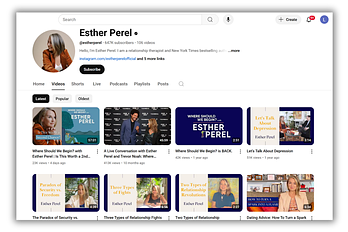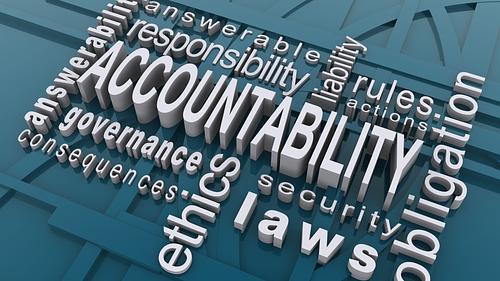September 06, 2022 - Coaching Business
How to become a life coach: 7 steps to setting up a successful life coaching business
If you are wondering how to become a life coach, or asking yourself if you have what it takes, you’re in the right place to get those questions answered

The coaching industry is growing.
The information industry is estimated to be worth $350 billion by 2025 and a portion of that will be earned by coaches through coaching programs and services. Life coaching is one segment of the coaching industry, and a niche with perhaps the widest avenue for growth because it covers so many different aspects of the human journey.
As a life coach, you will be part of a growing industry that contributes positively to changing people’s lives.
In this article, we will explore how to become a life coach, define what a life coach is and is not, consider the pros and cons of pursuing a professional coaching certification and outline how to set up a viable business as a life coach to ensure success.
Let’s answer the burning question - How to become a life coach?
1. Understand the skills you need to become a life coach
First, let’s get clear on what a life coach is and what a life coach is not. A life coach is not a therapist. Therapists work on human emotion and mental health. Their industry is highly regulated and professional certification is a prerequisite for a career as a therapist. A life coach, on the other hand, gets their clients to ask important questions and helps them set and meet goals to plan for their future. No professional certifications are needed to be a coach.
To be an effective coach, you will need to develop a wide range of skills from being an active listener to entrepreneurship, marketing, and leadership. Some skills you may naturally have or may have acquired through other life and career experiences, and other skills you may need to invest time and money into improving upon. Recognizing from the beginning that being a life coach is an ongoing journey of self-improvement lays the foundations for you to become a successful life coach.
2. Decide on a life coaching niche
It’s tempting to offer services as a life coach so that you solve clients’ challenges across the board, especially when you are starting out and figuring out how to become a life coach. However, it is wiser to niche down to a specific area of expertise. You’ll end up attracting the exact clients you are looking for and marketing will be more focused when you narrow down to a specific target audience.
For example, which of the following marketing statements will be clearer and more likely to attract a committed clientele, A, B or C?
A: I’m a life coach and I help people find their life partner.
B: I’m a life coach and I help women find their life partner.
C: I’m a life coach specialising in helping single women in their 30s find their soulmate.
A is very generic. You’ll be speaking to no one in particular, and your ideal client will discount the message as not intended for them.
B is better, but it is still fairly general and can be speaking to anyone woman looking for a partner. You’ll end up spreading yourself too thin and not going deep enough in any one area to really be of value.
C is highly targeted. We are speaking to women in a specified age bracket and the value is clear.
So, consider what area of expertise you can provide the most value in. What obstacles have you overcome in your life that you can guide people around? What challenges do people typically come to you to solve for them? What are you the go-to person for?
3. To certify or not to certify
The coaching industry is unregulated so there is no governing body that requires you to hold a coaching certification to be able to practice as or become a life coach. Whether to get certified or not is one of the biggest decisions to make as you learn how to become a coach.
Not needing to be certified doesn’t mean you shouldn’t. Holding life coaching credentials from a recognized organization such as the International Coaching Federation (ICF) adds to your authority and builds instant trust with potential clients. It boosts your credibility, and of course ensures that you have the skills vital for coaching. It is also a safeguard for clients to protect against unethical practices and helps to maintain the standards of the industry.
Pursuing a coaching certification commonly entails undergoing a set number of hours of coaching (often paid coaching) and passing examinations.
For example, to become a certified coach through the ICF, you must pass the Coach Knowledge Assessment (CKA), which assesses your competencies in the following areas:
-
Active Listening
-
Coaching Presence
-
Creating Awareness
-
Designing Actions
-
Direct Communication
-
Establishing the Coaching Agreement
-
Establishing Trust and Intimacy with the Client
-
Managing Progress and Accountability
-
Meeting Ethical Guidelines and Professional Standards
-
Planning and Goal Setting
-
Powerful Questioning
You can choose to study directly through ICF or through an ICF-accredited life coach training program through their Training Program Search Service (TPSS).
Of course, ICF is not the only certification body in the coaching industry. Alternative coaching associations include the International Association of Coaching (IAC) and the American Coaching Association (ACA) as well as organizations around you region.
While certification is an obvious benefit, such courses can be costly and take time. You would need to weigh these factors up and decide whether you can build your coaching business without certifications. Prospective clients are more likely to trust testimonials and recommendations and look at certifications to justify a decision already made.
If you choose not to get certified, be sure you can demonstrate your value as a coach in other ways:
-
Complementary qualifications - Depending on your niche, a degree in leadership or marketing for example can lend credibility to your coaching practice.
-
Work experience – Use your prior career experience to build credibility that you are qualified to advise in your niche.
Manage Your Coaching Practice in One Place
CoachVantage automates your business workflows so you can focus on impactful coaching results.
Start Free TrialNo Credit Card Needed -
Testimonials – Show these from those you have coached or helped professionally and gotten results for.
4. Establish your coaching business
Registering your business
Once you’ve decided on your niche, you’ll need to choose a unique name for your business and register it and your business legally with the relevant authorities in your country. You’ll be asked to decide on the type of business to register and you should seek legal advice to be fully informed on what each type of business entails, the legal ramifications of each and which is best for your circumstances.
As a general summary, but this information is by no means exhaustive:
Sole proprietorship: This business is unincorporated so is not a separate legal entity from you. Your earnings minus relevant expenses will be taxed as personal income tax and you will be considered self-employed. You are personally liable for the debts of the business.
Private limited company: This is a business set up as a separate legal entity from yourself and is subject to business tax. It requires the proper keeping of records and conduct as detailed in the Companies Act. The benefits of having a private limited company is that you are limited in liability. The business, not you, is responsible for the business’s debts and liabilities as long as you keep these separate from your personal funds.
Consider insurance to protect your business
Taking out insurance isn’t mandatory but should be something to consider to protect your business against a lawsuit. Speak with an insurance company about your risks and the kinds of insurance coverage they can offer you.
Types of policies to consider include Professional Indemnity, Commercial Liability, Cyber Security.
5. Understand how to become a life coach making a profit
Once you have a clear understanding of the costs of running your business, you will have a clearer picture of your sales targets – how much business you need to bring in and how you can price your different services and packages to help meet your sales targets and maintain a healthy profit margin.
There are three main ways that life coaches charge for their services:
-
Per session (hourly)
-
Per month
-
Per package (usually $X/3 months or $X/6 sessions)
The benefits of the package pricing model
Charging for packages gives you a clear forecast of your income over a set period and it is easier to cover your expenses.
On the client front, using this model usually means you get more committed clients. Since they have paid upfront, they tend to be more committed to getting results. The more sessions you provide in a package, the bigger the impact you can have on their lives and the more likely they are to renew.
How much to charge
Pricing is a personal decision linked tightly to your perception of your own self-worth. Most coaches tend to undervalue their services so if you think this is you, be aware that you should be charging more than may be comfortable for you.
Your pricing decision will also be affected by your experience, your target market, the market for your niche, the extent of the program you offer and your clients’ personal time with you (the more time you give personally, the higher the price should be) and your credentials (again where professional certification can help). Do some market research to understand what is typically practiced. But understand too that the more differentiated you are and the more perceived value there is around your brand, the higher a client will expect to pay. Clients pay for results. If you can prove you deliver results, you have the ability to command your own fees regardless of the competition.
6. Manage client expectations
Hold clients to a coaching contract that sets expectations
A common error start-up coaches make when learning how to become a life coach is cutting corners with their contracts, if they have them at all. If the terms of your service are vague, you are opening yourself up to disputes with your clients on fees or attendance, especially if you aren’t running a pay-in-advance model.
Have a lawyer draft a contract for you that fully sets out expectations on payments, refunds, attendance, forfeits for non-attendance, what is considered non-attendance, timing of sessions and late attendance, expectations around doing the work, etc. You will be able to hone this agreement as you gain more experience and, for each new dispute on terms that comes up, you can add this to your contract. Also look for coaching memberships that will provide a workable contract template into their programme that you are free to use. You benefit from their hindsight.
7. Market your business
Understanding how to become a life coach means understanding how to market your business. The majority of time spent in the business will be spent on marketing rather than coaching. You need to be consistently feeding the pipeline of prospective clients to manage your churn rate and don’t forget to make it easy for prospects to contact you,
Be visible through paid and organic marketing
Having a digital presence is essential when following the rules on how to become a life coach. Don’t fall into the trap of building your website and social media pages and hoping they will come. If they don’t know you exist, they won’t come.
Do a mix of organic and paid marketing. Organic marketing is a heavier investment of your time, creating relationships online, sowing seeds for future cultivation. Paid advertising gets immediate results, but is an investment in capital. Put aside a portion of your income to spend on paid advertising and start this as soon as you can afford to. But don’t neglect the organic traffic that is freely available. As the saying going, “He who shouts loudest wins.” The rule for organic marketing is - share first. Don’t be afraid of giving information away for free. This establishes who you are, how you work, what you know and that you can be trusted – all essential when knowing how to become a life coach.
CONCLUSION
Knowing how to become a life coach is one thing. It’s another to put it into practise. One way to organize your new coaching business is through an online CRM system that helps you manage your coaching clients: from getting your contracts and agreements signed, invoices delivered and paid on time to getting client sessions booked and recorded and client assignments assigned and tracked.
Enquire about CoachVantage CRM to help you start a highly organized coaching business or try our free trial today!

Glen Oliveiro
Founder of CoachVantage
With a pulse on the coaching industry, Glen personally engaged with hundreds of coaches to develop a platform that addresses their day-to-day challenges. A visionary entrepreneur, Glen is committed to revolutionizing coaching practices through the innovative solutions offered by CoachVantage.
https://www.coachvantage.comYou might also like...

Top Lead Generation Tips & Strategies For Coaches: Life Coaches, Business Coaches, and More
.png)
Top Social Media Marketing Tips for Coaches that Work in 2025
.png)

